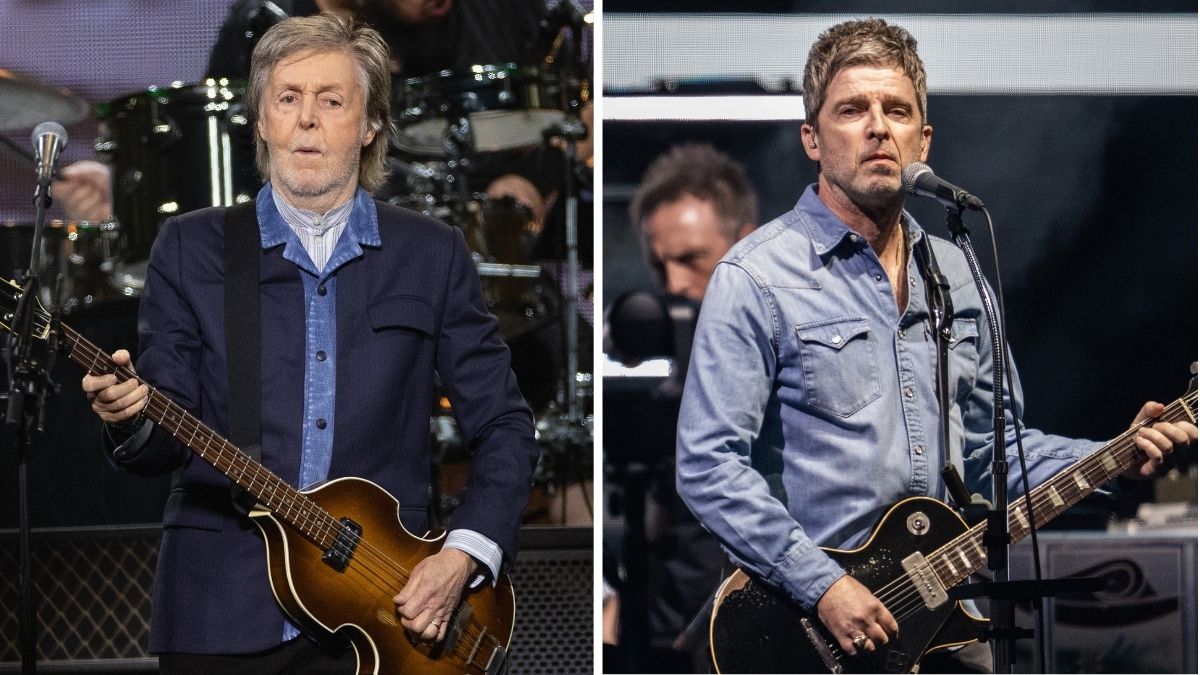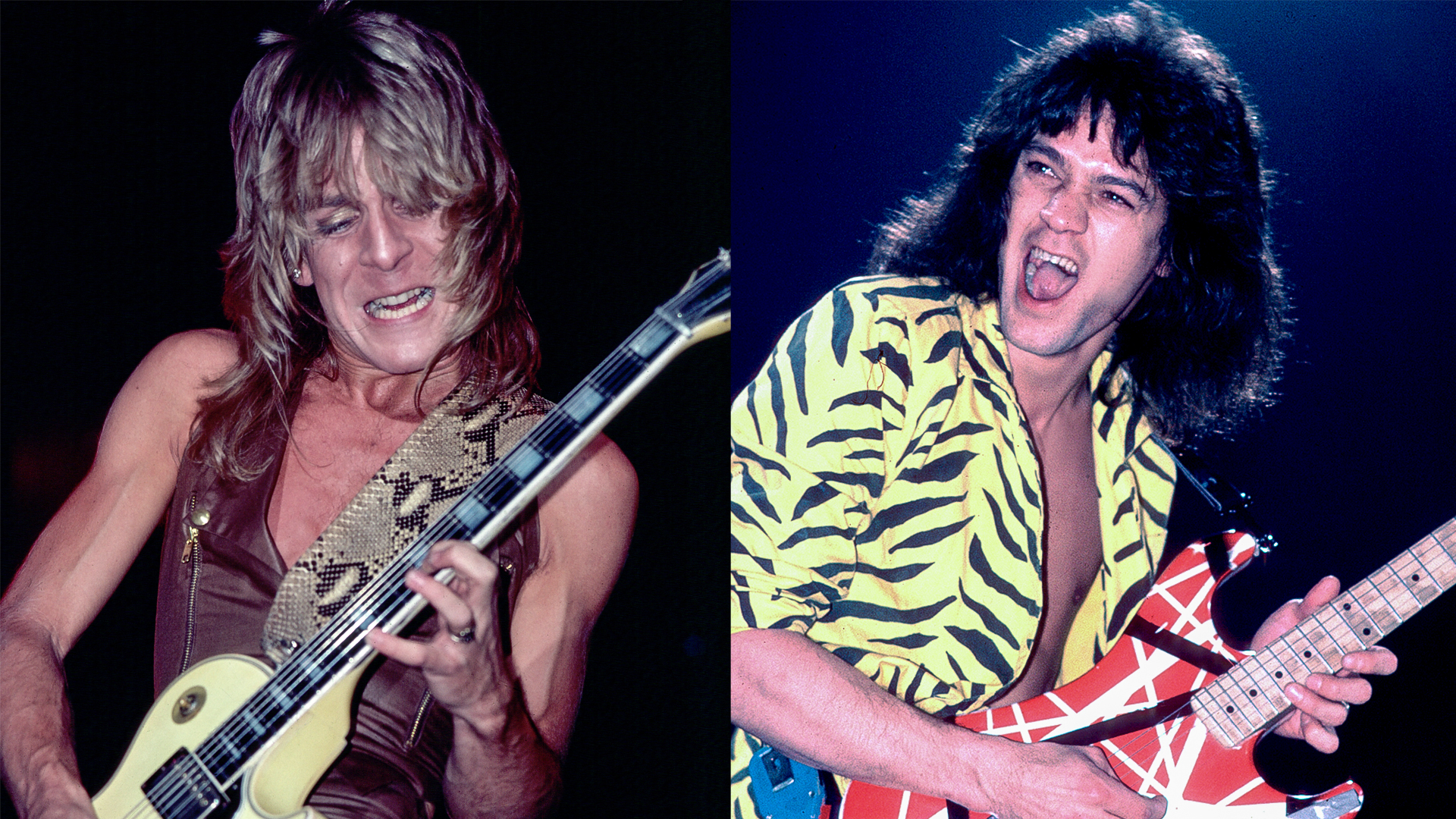“They're derivative, and they think too much of themselves”: What Paul McCartney thought of Oasis…
When Oasis fired shots at the Beatles, Paul McCartney didn’t take it lying down

All the latest guitar news, interviews, lessons, reviews, deals and more, direct to your inbox!
You are now subscribed
Your newsletter sign-up was successful
There’s no denying that Manchester indie rock heavyweights Oasis draw great influence from the Beatles. However, Paul McCartney says he was surprised to find himself on the receiving end of criticism from the Gallagher brothers.
Formed in 1991 in Manchester, some 31 years after the Beatles, in a city 35 miles east of Liverpool, Oasis, like their heroes, shot to fame in double-quick time. Their debut album, "Definitely Maybe", bearing timeless singles like "Rock 'n' Roll Star", "Supersonic", and "Cigarettes & Alcohol", shot the Burnage boys to fame.
As the hype around the band reached fever pitch, fans and critics alike were quick to draw parallels between the two bands. Then McCartney soon found himself fielding questions about Manchester's hot new act.
“The trouble is, because they're so Beatle-y, people ask, ‘What do you think about Oasis?’” McCartney told Howard Stern in 2001. “I got fed up of being asked. I started off saying, ‘They're okay. Hey, I wish them good luck. They're young guys, it's difficult out there.’ I was trying to help.
“But then they started to badmouth us,” he adds. “They started to say, ‘We're much better, man.’”
The Gallagher brothers have never been known for their humility. By 1996, the success of their second album, "(What's the Story) Morning Glory?", had sent them into the Stratosphere. That only bolstered their egos.
The album, buoyed by ultra-successful singles, "Wonderwall" and "Champagne Supernova", sold a record-breaking 345,000 copies in the UK in its first week, and would stay at the top of the album charts for 10 consecutive weeks. The fame had perhaps gotten to Noel Gallagher's head. In conversation with MTV, he began firing shots at the Beatles like he wanted a war.
All the latest guitar news, interviews, lessons, reviews, deals and more, direct to your inbox!
He had said that the public’s reaction to their first two albums meant that Oasis were bigger than the Beatles. Though Gallagher has since admitted to being high during the interview, and said his claim was “embarrassing,” the damage was done.
When pressed on Gallagher’s comments by the Irish Times a year later, McCartney returned fire.
“They're derivative, and they think too much of themselves,” he had said, adding a cutting final blow: “They mean nothing to me.”
George Harrison, meanwhile, once said that the band would be better off without their loud-mouthed lead singer, calling him “excess baggage.”
Of course, it would be easy to dismiss their very public falling out as nothing short of pantomime. Oasis’ PR schtick has thrived on controversy from day one; their whole act has hinged on bravado, and going after the biggest band in the world showed just how high the wave they were riding was at that time.
Two and a half decades later, when asked about his infamous dig at a preview screening of "The Beatles: Get Back", Gallagher retracted his statement. The Fab Four, he said, “mean everything to me”.
“They’ve definitely got the best tunes, hands down,” he said. “In my record collection, they’ve got the greatest tunes by far.”
Noel Gallagher, being on brand as ever, has since turned to other artists to badmouth, with Green Day his latest victim.
In lighter news, Pete Townshend has named the Oasis song that is so beautiful it brought him to tears.
A freelance writer with a penchant for music that gets weird, Phil is a regular contributor to Prog, Guitar World, and Total Guitar magazines and is especially keen on shining a light on unknown artists. Outside of the journalism realm, you can find him writing angular riffs in progressive metal band, Prognosis, in which he slings an 8-string Strandberg Boden Original, churning that low string through a variety of tunings. He's also a published author and is currently penning his debut novel which chucks fantasy, mythology and humanity into a great big melting pot.


